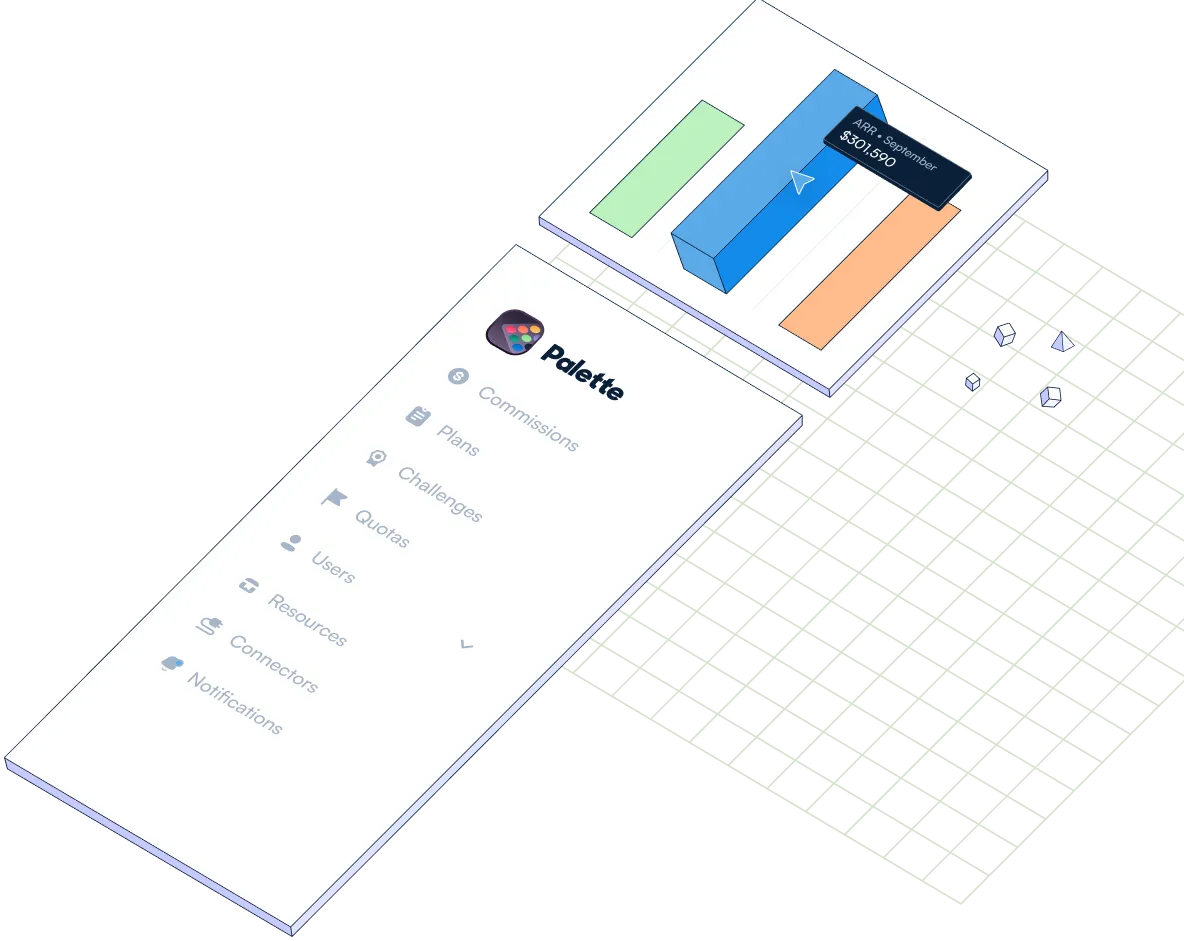A Guide to Sales Commissions for HR Professionals
Which corporate departments should be involved with sales commissions, and sales compensation more broadly? Commissions are the single most important factor impacting sales performance. Sales, and sales ops, should thus by definition be closely involved in determining commission structures and figuring out how they factor into overall sales compensation. Finance departments typically also play an important role as they partner with sales leadership to determine what type of compensation structure can be supported by the business - and drive the best results. Human resources, or people teams, also have an important role to play in the sales compensation conversation as they bring unique insights and perspectives that can help companies design the best compensation plans, identify issues, manage details and complexities, and optimize their outcomes. This guide to sales commissions is designed to help HR professionals understand some of the most important aspects of commissions to focus on as they work with other teams to design and optimize comp plans.
Why HR Teams Should Be Involved with Sales Comp
For HR teams, sales comp design is an important component of their overall mission; supporting the people who work at a company. Sales comp structure is arguably the most important factor impacting sales team performance and morale. According to research conducted by Glassdoor, the majority of US job seekers and workers feel that their compensation is the most important factor when it comes to work. Meanwhile, Everee found that 49% of sales reps surveyed felt that commissions were the most important factor determining where they decide to work.
Sales compensation is also a significant expense for the company overall; according to the Academy to Innovate HR (AIHR), U.S. organizations spend $800 billion each year managing their sales force, with $200 billion devoted solely to sales compensation.
All of this research and data on the US labor market demonstrates that overall sales compensation as well as specific commission structures are important in finding and motivating salespeople. In order for HR departments to fulfill their function of attracting, retaining, and supporting talent, they must have a seat at the table when comp plans are being designed.
How HR Teams Contribute to Sales Comp Design
HR and people teams bring valuable information, perspectives, and data which can be helpful in designing and optimizing sales compensation plans. Teams which exclude HR from sales comp design often miss out on valuable learnings and optimizations which can help improve sales performance.
Market Intelligence
HR and people teams may be able to help with setting salary ranges and determining the split between base versus variable pay. HR teams can be a valuable source of information on market norms for sales compensation in any given industry or geography. They can run surveys and use third party data sources to determine what ranges exist in the market and how they are changing. Through their conversations with candidates and others in the industry, they may even have insight into what competitors are offering. This data should be introduced to sales, sales ops, and finance teams, in order to help ensure that comp plans are competitive with others in the industry. This can help provide reliable context - and sometimes, a reality check - with internal estimates for comp ranges. It’s important to have a conversation with these other stakeholders to determine the appropriate balance between what the business can support, what it will take to motivate sales reps, and what the market expects.
Compliance and Standardization
It's also a good idea to involve HR and people teams with comp plan design to ensure that commission plans comply with relevant labor laws, industry regulations, and internal policies. This may include managing issues related to overtime, minimum wage requirements, and fair employment practices. Involving HR and people teams is crucial when finalizing comp plans for compliance reasons. Similarly, while finance and sales teams often focus on designing comp plans that will lead to strong business performance, compensation plans also need policies and procedures for practical considerations impacting sales reps. For example, comp plans should have a standard set of practices for paid or unpaid leave, such as family leave, and for role changes, promotions, and transfers between different sales teams or regions. All too often these important details are not addressed in writing in the comp plan, leaving the potential for disparity in the experiences of sales reps on different teams. At the very least, a lack of clear rules here leaves sales managers scrambling to find solutions when these events inevitably occur. HR and people teams can put clear policies in place here which are in line with the larger company and ensure that sales reps are treated consistently and fairly.
When it comes to leveling and job roles, HR teams have significant expertise across departments within the company in what it takes to create roles which keep employees motivated, standardize these across teams, and create criteria to ensure talent is placed in the appropriate role for their experience and qualifications. When it comes to job titles and OTE, for example, HR teams can help build structures that are consistent with the rest of the company so that there isn’t title inflation or deflation, or very disparate OTE for the same experience levels, across different departments. With a strong role to play in performance evaluations across the company, HR can help ensure that these happen fairly and transparently. Ideally, sales team performance should be evaluated with similar values and considerations as other departments in the company. HR teams can help create standardized evaluation scorecards, descriptions for different performance levels, and other materials that help create fairness in evaluations.
Communicating Commission Plans
HR teams can also help with communicating commission plans to the sales team. Communicating new plans and changes to plans can often be difficult, especially when plans are complex and multiple stakeholders are involved. In situations where there have been frequent changes to the plans, changes have been made and reversed, and teams disagree about what changes should be made, HR can act as a neutral party to help ensure that decisions are made fairly, plans are documented clearly, and that communication is standard to all impacted teams across the organization. This impartial perspective is especially important in situations where changes to plans have been contentious or caused disagreements between teams. Similarly, HR teams can also act as mediators in situations where there are concerns or disputes related to commissions which are not able to be resolved by other teams. In these situations, they can work with sales management, finance, and individual sales reps to resolve any disputes and ensure that payments are accurate and fair.
Clear and consistent communication on sales compensation plans is often lacking in organizations with complex plans. HR can conduct regular training on sales compensation structures, and include this in onboarding for new hires. Ensuring that new sales reps understand their commission structure clearly is essential in order to keep them motivated and help them understand their own earning potential. All too often, sales reps don’t understand what they need to do to achieve their full OTE, and regular training sessions can help counteract this and improve sales performance.
The Risks of Excluding HR from Sales Comp
There are a number of areas where HR and people teams can contribute to better and more effective sales compensation plans. Excluding them can lead to inequitable compensation, noncompliance with relevant laws and regulations, disengaged and unmotivated sales reps, tension between different departments, and high turnover and retention problems. There are often lots of stakeholders involved in comp plan design, and adding more may feel daunting. However, HR teams can help streamline and standardize comp plan design, and improve their efficacy. The positive impact which HR teams can have on comp plan design far outweigh any reasons to exclude them.
Why Palette?
Automate calculations
Automate sales commission payments. Create commission rules, define a payout schedule and access monthly statements for each sales rep.
Motivate and coach with real time dashboards
Motivate sales professionals with real-time visibility into commissions. Coach your team, align everybody with company goals and drive long term sales performance.
Compare, simulate and design commission plans
Roll out new commission plans with ease. Compare plans and simulate new rules with a single click.
No more errors
Palette keeps history logs and tracks every calculation detail, helping you to reduce sales commission errors.
Reconcile revenue with CRM data
With Palette you can reconcile invoices and payments with CRM data and pay commissions to your reps only when the money is in the bank.
Create challenges with one click
Incentivize your teams on short term goals. Create a challenge targeting any KPI you want to uplift, drive better results and boost your company’s culture.

Loved by teams and companies you know

















Ready to try
Palette?
